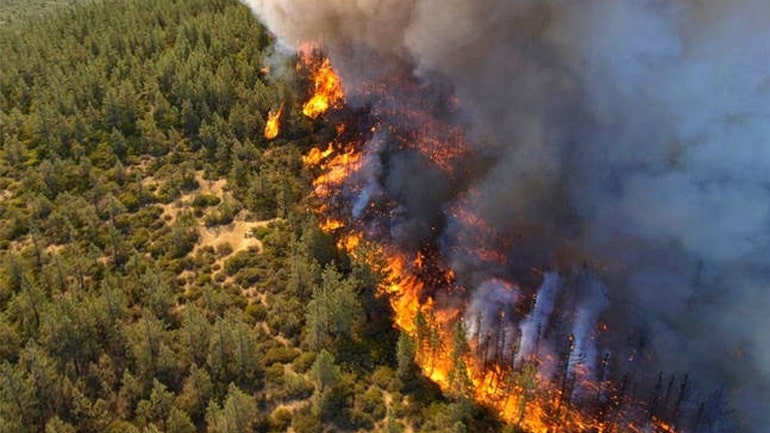
AIR POLLUTION FROM FOREST FIRE IS CONNECTED WITH OVER 33,000 DEATHS WORLDWIDE EVERY YEAR
The deaths related to smoke and air pollution from forest fires, it is estimated that every year worldwide are almost as many as the deaths associated with heat waves, according to a new international scientific study with a Greek contribution. At least 33,500 deaths a year worldwide can be attributed to air pollution from forest fires. According to the APE-MPE, the study estimates that even short-term exposure of humans to tiny particles (PM2.5 or up to 2.5 millionths of a meter), which enter the lungs and blood, increases the risk of dying from disease lung, cardiovascular and other causes. Particles from forest fires are usually smaller and more toxic than those from urban fires.
Researchers led by Yuming Guo of the School of Public Health and Preventive Medicine at Australia’s Melbourne University alone analyzed 74.5 million deaths in 439 deaths in the medical journal The Lancet Planetary Health. countries. Correlating these data with data on levels of PM2.5 particle concentrations due to fires, they concluded that 0.62% of deaths from any cause internationally, 0.55% of cardiovascular deaths and 0.64% of deaths associated with lung disease, can be associated each year with the direct effects of microparticles from fires. By comparison, heat-related deaths are estimated to account for 0.91% of all deaths worldwide.
Guatemala was found to have the highest rate of annual fire-related deaths from fires (3.04%), followed by Thailand (2.32%), Paraguay (2.09%), Mexico (1 , 72%) and Peru (1.61%). In Greece the corresponding percentage was estimated at 0.33%, just as in Canada, while in the USA at 0.26% and in Britain only 0.09%. “Smoke pollution from fires can spread up to 1,000 km away and the risk of fires is projected to increase as climate change worsens,” Guo said. He estimated that children and the elderly are the most vulnerable to the effects of fires on health. From the Greek side, the study was attended by Professors Klea Katsougianni and Evangelia Samoli of the Laboratory of Hygiene, Epidemiology and Medical Statistics of the Medical School of the University of Athens.
Link to the scientific publication: https://www.thelancet.com/journals/lanplh/article/PIIS2542-5196(21)00200-X/fultext
